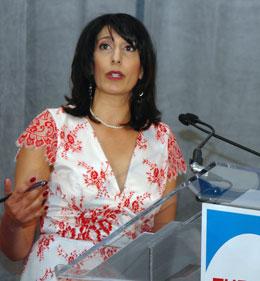Faith a big factor in giving by New Canadians

By Mata Press Service
New Canadians from South Asia, China and the Philippines are more likely to donate to charitable causes than the general population, a new survey has found.
The survey by the Angus Reid Institute and CHIMP or the Charitable Impact Foundation, found this segment of Canadians – many of whom are motivated to give by their personal religious faith – are more likely to donate to charitable causes than the general population, and more likely to say that they should be doing even more than they already are.
The key findings stated;
• From poverty reduction, to faith-based issues, to human rights, people born outside Canada are more likely to have donated to each of the 11 charitable areas canvassed in this survey;
• While three-in-ten respondents from the general population (30%) say they should be “doing more” to contribute to charitable causes, this sentiment increases to four-in-ten (41%) among those born outside Canada
• Seven-in-ten immigrants surveyed (71%) say their religious beliefs have a strong influence on their giving habits, while fewer than half of the general population say this (46%)
• Money sent to family overseas is a significant source of giving for immigrants – one-in-four (27%) are currently sending money in this way
The survey sample was primarily drawn from individuals who were born in the top three emigrating nations – China, India, and the Philippines – though a handful of respondents say they were born in another country outside of Canada.
In addition to the sample of 439 residents born outside the country, this survey also captured a large group of second-generation Canadians.
“With the percentage of Canada’s population who are immigrants expected to grow in coming years, this segment becomes more important to the Canadian story with each passing year,” said Shachi Kurl, the executive director of the Angus Reid Foundation.
The survey authors said in their report that Canadians as a whole population can be divided into four groups in terms of their charitable behaviour: The Non-Donors, The Casual Donors, The Prompted Donors, and The Super Donors.
The Non-Donors (14% of the general population) are just that: People for whom donating money is simply not something they do. At most, members of this group donate less than $100 dollars and support just one charitable cause in a typical year. The vast majority of this group is even less charitably active.
Slightly more active in their charitable activities are the Casual Donors (31%). Members of this group spread their money around, with most donating to at least two different charities each year, but none of them report donating more than $250 annually.
The other two groups – the Prompted Donors (34%) and the Super Donors (21%) – are each significantly more likely than Casual and Non-Donors to support a variety of charities and to spend more than $250 per year.
Those born outside Canada are much more likely to fall into the Super Donor category. More than one-in-three (36%) may be considered members of the most generous segment of the population, compared to one-in-five (21%) within the overall population, said Kurl.
Across each of the 11 donation areas canvassed in this survey, those born outside of Canada are more likely than the general population to have volunteered or donated to all of them, with the exception of animal welfare causes.
Notably, second-generation Canadians as likely as immigrants to volunteer or donate in many charitable areas. This means that they are also much more likely than the general population to be involved. There is however, a large disparity between first and second generation Canadians in two areas – religious causes and involvement in their own ethnic community.
The role of personal faith is evident among Canadians born overseas. While just three-in-ten (31%) among the total population say they are involved with a religious or faith-based cause, this number jumps to six-in-ten (61%) among immigrants and four-in-ten (43%) among second-generation Canadians.
When looking at the impetus to give, faith is again a factor. Seven-in-ten immigrants to Canada (71%) say their own personal faith has a strong influence on their views of charitable activities. Just under half (46%) of the general population says this. Second-generation Canadians fall in between these two groups (55%):
One-in-four immigrants (27%), are also currently sending money to family overseas in the form of remittances. This represents double the number of second-generation Canadians who say the same (13%), while just a handful of general population Canadians say they are currently remitting.
The group remitting in the greatest numbers, by a large margin, are Filipino immigrants. Among this group, 43 per cent say they are sending money back overseas currently, while those from South Asia (25%) and China (15%) report doing so at a much lower rate.
New Canadians also ranked higher in the “should be doing more to support charitable causes” segment when compared to the general population.






